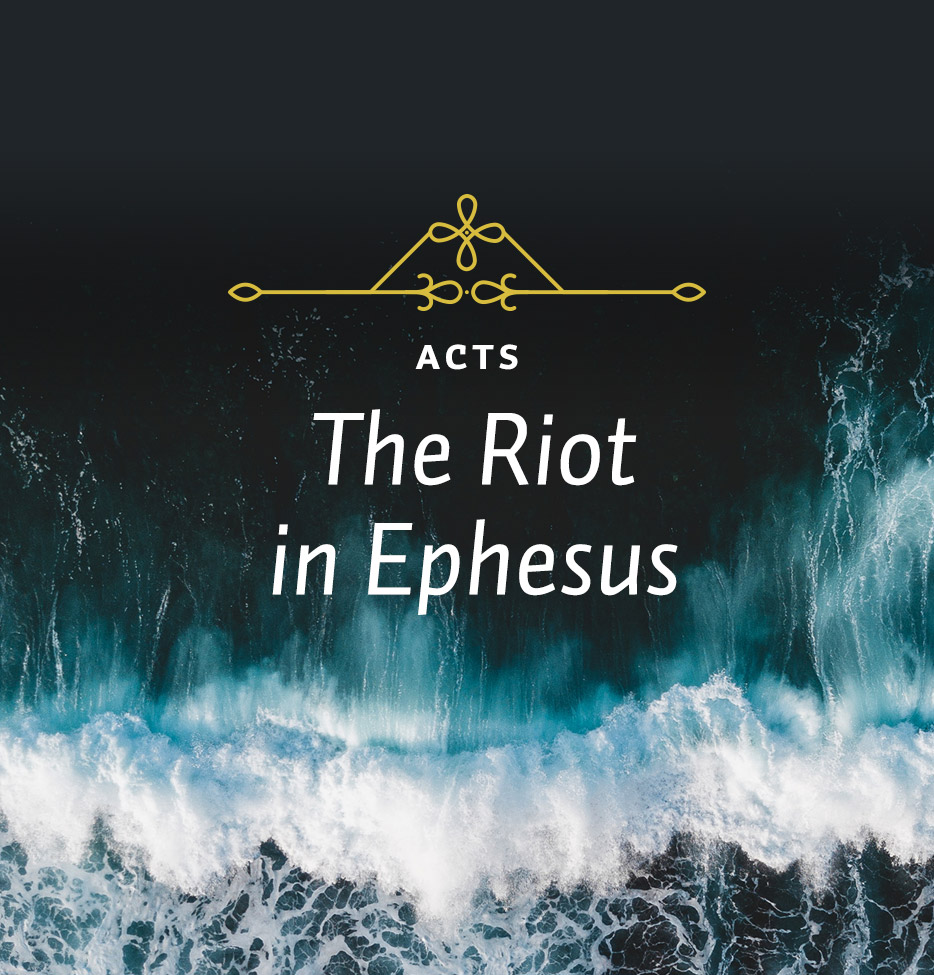There are two spirited defenses of Artemis in this chapter. Demetrius gave his first. We have his speech in the first paragraph, that is, in verses 23 to 27. Then, beginning in verse 35, the town clerk does much the same thing. By this time, he was already quieting the uproar, but he gives many of the same arguments Demetrius used, though in different language.
How did they defend Artemis, the goddess who was worshiped so intently? There were two ways they did it. First, they appealed to numbers. Demetrius said, “Artemis is worshiped throughout the province of Asia and the world” (v. 27). In other words, “Everyone’s doing it.” That is exactly what the city clerk says later: “Men of Ephesus, doesn’t all the world know that the city of Ephesus is the guardian of the temple of the great Artemis and of her image which fell from heaven?” (v. 35).
The second argument really isn’t an argument. It is only a defense by emotion. The crowd, which had been stirred up by Demetrius and the others, stormed into the amphitheater, a place seating about 25,000 people and, for the space of two hours shouted out with one voice again and again, “Great is Artemis of the Ephesians!”
Those were emotional moments. It was only at the end of that period—I suppose as the energies of the crowd were beginning to be drained away—that the city clerk, a wise man who had probably waited for the moment, came forward, told them to quiet down, and then dismissed the assembly.
These are the ways wrongdoing is defended in our day. We know the appeal to numbers. It is the classic and characteristic defense of our time, though we call it “statistics.” If you can prove that enough people believe something, well then, obviously their belief must be true. I am always astounded when I see this on television, especially in newscasts, for example. I am sure you have noticed how on television the results of opinion polls are being increasingly reported, as if they are news. It goes like this: “NBC conducted an opinion poll this week, and two percent of the people think the president is lying; 98 percent think that he is telling the truth.” My response when I hear that is, “Who cares?” The point is not how many people think a government figure is lying (or doing anything else), but rather, is he lying? That is the issue. People generally think as they think only because of what they see on television anyway. How would they know to form an opinion otherwise? They do not know the individuals involved. They have no way of investigating the details.
This is often harmful to young believers. A student goes away to college and wants to live as a Christian. But what he is told there is: “Nobody holds those old values anymore.” That is not true, of course. He holds them, and unless he is nobody, which he is not, he ought to be able to say, “Well, I don’t know about everybody else, but there is at least one who thinks that way, and that’s me.” But, of course, when somebody says, “Nobody thinks that way anymore,” what they really mean is: “The majority think differently today.” If you press the point, they might say, “Only a little core of narrow, uninstructed fundamentalists hold to that old-fashioned morality. If you want to get on with us, you had better abandon that old way of thinking and join the ‘in’ crowd.”






